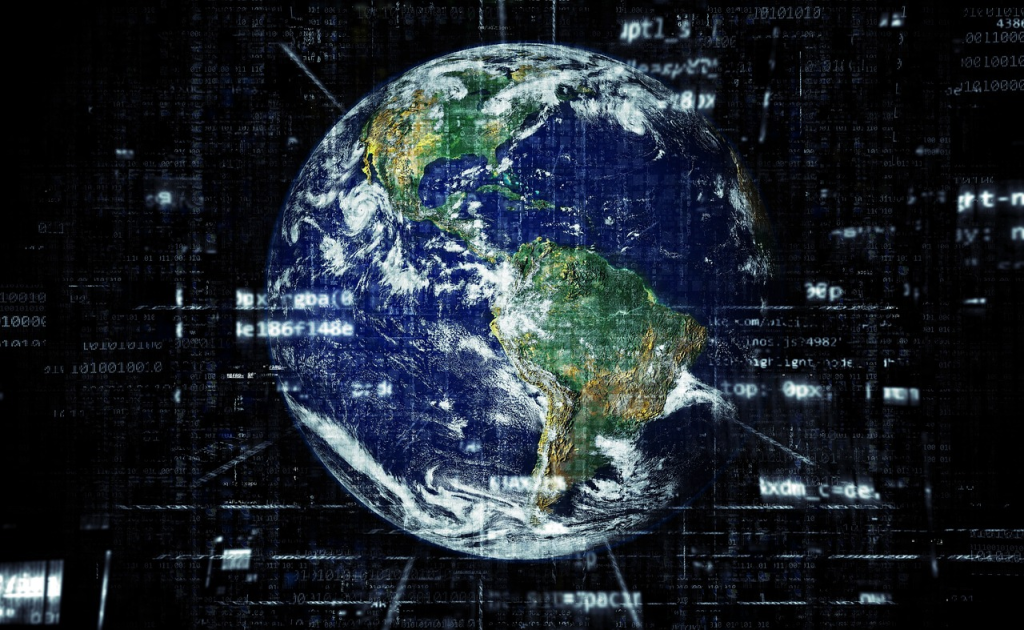Image Source: Pixabay.
In the grand tapestry of human history, few forces have shaped our existence as profoundly as technology. From the time the wheel was first made to the creation of artificial intelligence, each new technology has changed how we live, work, and connect with the world. In this article, we will explore how technology has revolutionized the way we do things across various aspects of human endeavor, from communication and transportation to healthcare and entertainment.
Communication:
Perhaps one of the most noticeable changes brought about by technology is in the realm of communication. In ancient times, messages were conveyed through messengers or written letters, often taking weeks or even months to reach their destination. However, with the advent of the telegraph, telephone, and eventually the internet, communication has become instantaneous. Social media platforms, email, and messaging apps allow us to connect with people halfway across the globe in real-time, transcending geographical boundaries and fostering global communities.
Moreover, the rise of video conferencing tools like Zoom and Skype has revolutionized the way we conduct business meetings and collaborate with colleagues, enabling remote work on an unprecedented scale. As a result, the traditional office setup has been reimagined, with many companies embracing remote or hybrid work models, offering employees greater flexibility and work-life balance.
Transportation:
Technology has also transformed the way we move from one place to another. In ancient times, travel was arduous and time-consuming, with journeys often spanning weeks or months. However, the invention of the wheel, followed by steam engines, automobiles, airplanes, and high-speed trains, has made travel faster, safer, and more accessible than ever before.
The emergence of ride-sharing services like Uber and Lyft has revolutionized urban transportation, offering convenient alternatives to traditional taxis and public transit. Meanwhile, the development of electric and autonomous vehicles holds the promise of a greener and more efficient future, reducing carbon emissions and traffic congestion while enhancing mobility for all.
Online Gaming:
Online gaming has become a ubiquitous form of entertainment, with millions of people worldwide logging in to play their favorite games with friends and strangers alike. Whether it’s immersive multiplayer experiences like Fortnite and World of Warcraft or casual mobile games like Candy Crush and Among Us, online gaming has become a cultural phenomenon, blurring the lines between virtual and real-world interactions
Moreover, the rise of online gaming platforms has paved the way for new forms of interactive entertainment, such as virtual reality and augmented reality experiences. These technologies have redefined how we perceive gaming by blurring the lines between physical and digital worlds. In addition, advancements in cloud gaming have made it possible for players to access high-quality games on various devices without expensive hardware requirements. As a result, online gaming is no longer confined to specific locations or devices; now anyone can play online games including Powerball online anywhere in the world, adding a new layer of convenience and inclusivity to the gaming landscape.
Healthcare:
In the field of healthcare, technology has brought about monumental advancements in diagnosis, treatment, and patient care. Medical imaging techniques such as X-rays, MRI, and CT scans have revolutionized the way diseases are detected and diagnosed, enabling doctors to identify and treat conditions with greater precision and accuracy.
Moreover, telemedicine platforms have expanded access to healthcare services, allowing patients to consult with doctors remotely, particularly in underserved rural areas or during times of crisis, such as the COVID-19 pandemic. Wearable gadgets and health-monitoring applications have given people the ability to keep track of their health instantly, encouraging preventative measures and prompt intervention.
Entertainment:
The entertainment industry has undergone a seismic shift with the advent of technology. Streaming services like Netflix, Hulu, and Spotify have disrupted traditional media formats, offering consumers unprecedented choice and convenience in how they consume content. With just a few clicks, audiences can access a vast library of movies, TV shows, music, and podcasts anytime, anywhere, on any device.
Furthermore, advancements in virtual and augmented reality have transformed the way we experience entertainment, blurring the lines between the physical and digital worlds. From immersive gaming experiences to virtual concerts and interactive storytelling, these technologies have pushed the boundaries of creativity and engagement, captivating audiences in new and exciting ways.
Conclusion:
In conclusion, technology has fundamentally changed the way we do things across every aspect of human activity, from communication and transportation to healthcare and entertainment. With each new innovation, we find ourselves redefining the limits of what is possible, pushing the boundaries of human achievement, and shaping the course of our collective future.
As we continue to harness the power of technology to solve complex challenges and improve the quality of life for people around the world, it is imperative that we do so responsibly, mindful of the ethical implications and societal impacts of our creations. For in the hands of humanity, technology has the power to both uplift and transform, shaping a world that is more connected, equitable, and sustainable for generations to come.







